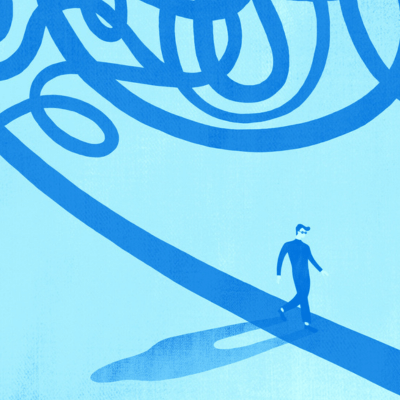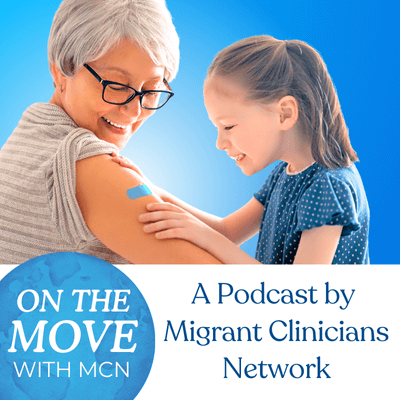Witness to Witness: Aspects of Flourishing During the Holidays

[Editor’s Note: The holidays are upon us! Today, we turn to Witness to Witness (W2W), Migrant Clinicians Network’s program that serves those who are in high stress jobs working with vulnerable clients who are themselves experiencing high levels of stress. Kaethe Weingarten, PhD, the founder of W2W, sends out a bimonthly newsletter. Today’s blog post is a peek into her newsletter, which includes a rundown of W2W’s successes in 2020, as well as resources and strategies to flourish during these difficult times. Read more about W2W on the Witness to Witness webpage, where you can also sign up for the W2W newsletter – click “Sign Up for the W2W Update”.]
When the history of the last four years is written, I believe that ordinary people are going to be portrayed as the heroes of our time. Election officials, poll watchers, health care workers, grocery clerks, postal service workers, janitors -- the list could go on and on -- have all been willing to do their jobs to help other people, often under adverse conditions. That was the nature of their heroism: helping others.
W2W exists to help those helpers. Those who participated in this work know that helping the helpers benefits us as well. We are grateful for the opportunity to serve.
We have accomplished a lot in 2020 and will do even more in 2021 because the demand and need for our services is growing stronger each day.
- Offered variations of seven different webinars in both Spanish and English to multiple groups with over 3000 registrations
- Facilitated multiple peer support groups
- Met one on one with scores of attorneys and health care workers
- Distributed 36 W2W Updates containing over a hundred curated articles
- Posted over 200 articles on the W2W Facebook page
- Continued to support MCN staff
- Successfully completed four IRB (research proposal) protocols
- Published two articles in peer-reviewed journals; wrote two MCN blogs and published research on W2W programming in Streamline
- Presented on W2W both nationally and in the UK
- Sent out several grants to locate funding for W2W
- Created article and slide deck archives on over 50 COVID-19 topics
…and probably there is more…
We strive in all of our work to put into practice socially just frameworks.
- We apply systemic principles to communities for the purpose of social justice
- We work non-hierarchically and collaboratively internally and externally
- We work toward social change by collaborating with a range of community groups, including immigrant legal organizations, community health centers, Ventanilla de Salud, and organizations that support migrants and agricultural workers and whose mission is to address inequities
- Our work is explicitly political
- We frankly discuss institutional betrayal and systems of oppression, both recent and historical
- We focus on well-being; we talk with people about what they want in their lives
- We address health disparities from a human rights perspective
- We offer culturally respectful and linguistically appropriate support
- We nest ideas about individual resilience inside models of peer support, family resilience, organizational resilience, and community resilience, ever mindful of historical patterns of resilience and resistance in marginalized communities
Despite the difficulties of 2020, we firmly believe that collectively we can do hope together, a key idea of W2W.
Often the articles I feature are on challenging subjects with difficult material to digest. The topics are important but they are not easy to take in. For this Update I am focusing on material I find inspiring and I hope you will as well.
Kids and Adults Think Good People Are Happy People
The first article reports on how children and adults, both in the US and in other countries, conceptualize happiness. In these studies, overall, it seems that people find a deep connection between being a good person morally and living a happy life. In one study, “children and adults read about one character who experienced a lot of good feelings, but was mean. They read about a second character who experienced few good feelings, but was nice. They were able to correctly identify which character experienced more good feelings and which character was nicer. When asked which character was happy, though, children and adults overwhelmingly selected the character who was nice rather than the one who experienced good feelings. This finding suggests that people believe happiness goes beyond just having positive feelings.”
ORGANIZING AGAINST SYSTEMIC RACISM DURING COVID-19
I have been impressed by the work of the Praxis Project, a national non-profit organization based in Oakland, CA that was founded in 2002 whose mission is “to build healthy communities by transforming the power relationships and structures that affect our lives and communities.” They recently published a brief about what community organizations needed during the unprecedented syndemic of 2020, a synergistic coming together of multiple pandemics, including the pandemics of racism, poverty, and of course, Covid-19. Not surprisingly to W2W, 50 percent of their respondents named “emotional/social support” as a strong need now, behind only funding and additional staff. In their brief they conclude with recommendations for philanthropy, public health professions, and allies. I am also including their “Working Principles for Health Justice and Racial Equity,” inspired by the 1996 Jemez Principles for Democratic Organizing.
Outcomes of Randomized Clinical Trials of Interventions to Enhance Social, Emotional, and Spiritual Components of Wisdom
I think we can all agree that if there ever was a time for wisdom in global affairs, now is that time. I am appreciative that one approach to wisdom, then, is figuring out whether it can be learned, because if we have to rely only on those who are already wise, we are in deep…well, you know what we are in. In this study, researchers did a meta-analysis of wisdom studies and identified three components that seem to be part of the experience of wisdom, both “theoretical wisdom (understanding the deep nature of reality and humans’ place in it) and practical wisdom (also known as phronesis: making good decisions or doing the right thing, at the right time, for the right reasons).” In their research, prosocial relations, emotional regulation, and spirituality stood out. They also found that to some degree each of these could be strengthened with training. I found a practical wisdom scale developed by these researchers and eagerly took the short quiz to see if I was wise. You can take it also. It is the Jeste-Thomas Wisdom Index developed at the UC San Diego Health Sciences Sam and Rose Stein Institute for Research on Aging.
The plasticity of well-being: A training-based framework for the cultivation of human flourishing
As the pandemic rages on, there is plenty of evidence that on a population basis there is a decline in mental health, an increase in drug overdoses and, more prosaically, a decrease in well-being. All the more welcome then is this research that found that well-being can be cultivated. The authors focus on the “plasticity of well-being,” highlighting awareness, connection, insight, and purpose as dimensions that can all be developed and strengthened through mental training. In the article they present their research as to why these dimensions are significant for psychological well-being, identify the processes that are involved in their cultivation and discuss the “neural and biological underpinnings” of each dimension. In the supplement to their article, “The Plasticity of Well-being: A Training-based Framework for the Cultivation of Human Flourishing,” they provide a table and references to support their findings.
Theater of War for Frontline Medical Providers
In my December 12 W2W Update I said I would likely recommend Theatre of War again in this final Update and so I am. The productions I have seen have truly created a memorable experience for the hundreds of thousands of people who have now seen performances. I am linking again to this trailer that showcases a performance for frontline medical workers. Rarely does a trailer give a true taste of what the whole will be like, but I think this one does capture the experience well. Each performance is followed by a panel and then opens to a global audience for reflection. Attended by thousands of people at a time, these events embody this meaning of catharsis: when a person is transported to another emotional place as a result of witnessing a gripping performance, whether in life or art. That is certainly what I have experienced with Theatre of War.
This Update is circulating on the day after the winter solstice, the first day of the year that dawns a bit brighter than the one before. I am taking that as a metaphor and adding to the “light.” But not without recognition of the both/and nature of our current moment. We are headed into a stretch ahead that will bring more illness, more death and more suffering. Yet, various salutary factors co-exist. There is light and darkness. So many of our winter celebrations acknowledge this duality. And, so it seems, even has a paint company. As a person with synesthesia, a person, that is, who often crosses one sensory perception with another, say hearing a sound as a color, I am ending the 2020 W2W Updates with a set of colors that mark the year for me -- as well as the company that selected these colors -- as “pressing us forward.” May 2021 bring wisdom, health and peace to our fractured world and nation. May we all create moments of joy and lightness as we move through the coming challenging days .

Like what you see? Amplify our collective voice with a contribution.
Got some good news to share? Contact us on our social media pages above.
Return to the main blog page or sign up for blog updates here.
- Log in to post comments









